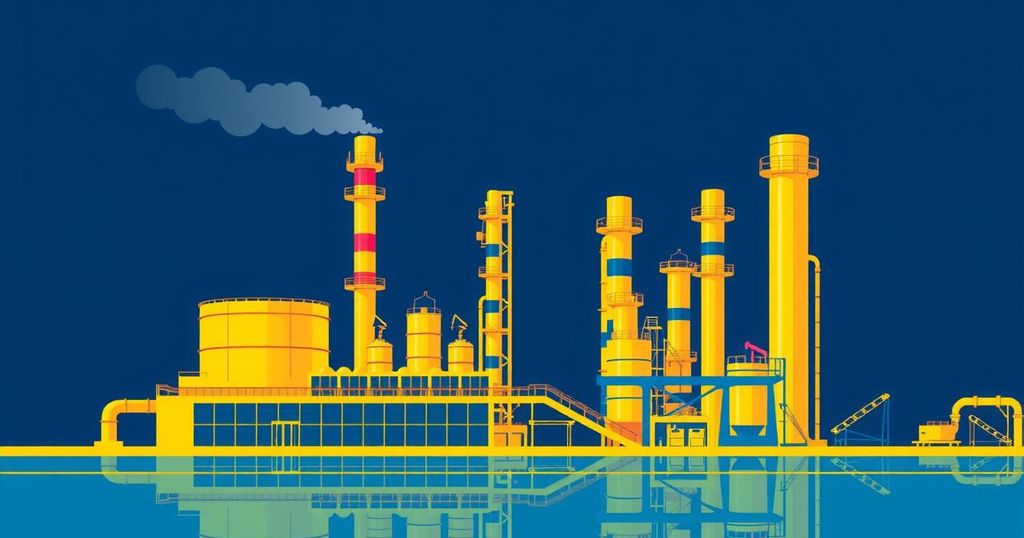Senator Heineken Lokpobiri affirmed that the full deregulation of Nigeria’s downstream oil sector has begun to benefit citizens, despite its challenges. He stressed the importance of local petrol retailers and expressed commitment to enhancing services through collaboration with PETROAN. Addressing concerns, he clarified the government’s intentions regarding the naira-for-crude scheme and emphasized the NNPC’s autonomy in decision-making for the sector’s advancement.
Senator Heineken Lokpobiri, Minister of State for Petroleum Resources, emphasized that the full deregulation of the downstream oil sector, instigated by the administration of President Bola Tinubu, is now yielding positive returns for Nigerians. During a meeting with the Petroleum Products Retail Outlets Owners Association of Nigeria (PETROAN), he acknowledged the challenges of this significant decision but underlined the ongoing benefits for the populace.
He noted that the advantages of deregulation are particularly noteworthy for local petrol retailers, as the majority of Nigerians rely on these outlets to procure fuel. Lokpobiri expressed his determination to collaborate with PETROAN to enhance services for consumers and highlighted the association’s reach across neighboring countries, including Chad and Cameroon.
“It was a very difficult decision to get the sector fully deregulated. It was something that no leader had the courage to do. But today, everybody can agree that we are getting the benefit of full deregulation,” he stated. He pointed out that previously, fuel availability and pricing were inconsistent throughout the country, but deregulation has led to more equitable pricing and increased investment opportunities.
Lokpobiri expressed hope for expanded energy solutions, including Compressed Natural Gas (CNG), given the country’s transition towards gas as a primary energy source. He pledged to support necessary government actions to facilitate more widespread distribution of CNG.
In response to concerns raised by PETROAN President Dr. Billy Gillis-Harry, Lokpobiri assured ongoing collaboration to address industry challenges. Regarding speculation about ending the naira-for-crude oil exchange initiative, he clarified that the government plans to reevaluate the pilot scheme rather than cancel it.
“Government is not cancelling it… we’ve always encouraged people to buy crude in whatever currency,” Lokpobiri explained. He affirmed that pricing and transactions would continue to be negotiated in the private sector, maintaining that the government does not interfere in these dealings.
The Minister further stated the Nigerian National Petroleum Company Limited (NNPC) is now structured to operate akin to major global entities, thereby enabling it to make autonomous decisions for the benefit of Nigeria’s oil sector. He indicated that this strategic independence would facilitate better business decisions in the oil industry.
Dr. Gillis-Harry commended Lokpobiri’s leadership in advancing oil production and combating crude oil theft, also noting the improvement in the licensing process to maximize Nigeria’s oil assets. He urged inclusion of PETROAN representatives in the board of the Nigerian Midstream and Downstream Petroleum Regulatory Authority (NMDPRA).
He advocated for the continued stimulation of local refining capabilities while also keeping importation as an option to maintain competitive pricing, asserting that it fosters fair competition in a liberalized economy.
“This will drive healthy competition and guarantee that our domestic prices will not be above import parity,” Gillis-Harry added, signifying PETROAN’s commitment to supporting various sources of petroleum product supply.
In conclusion, the decision for full deregulation of the downstream oil sector, as articulated by Senator Heineken Lokpobiri, is proving beneficial for Nigeria. The minister’s commitment to collaborating with key stakeholders is paramount for enhancing energy availability and establishing a competitive atmosphere in the oil industry. Addressing concerns from industry leaders reflects a constructive approach to governance aimed at maximizing Nigeria’s oil resources.
Original Source: www.arise.tv




